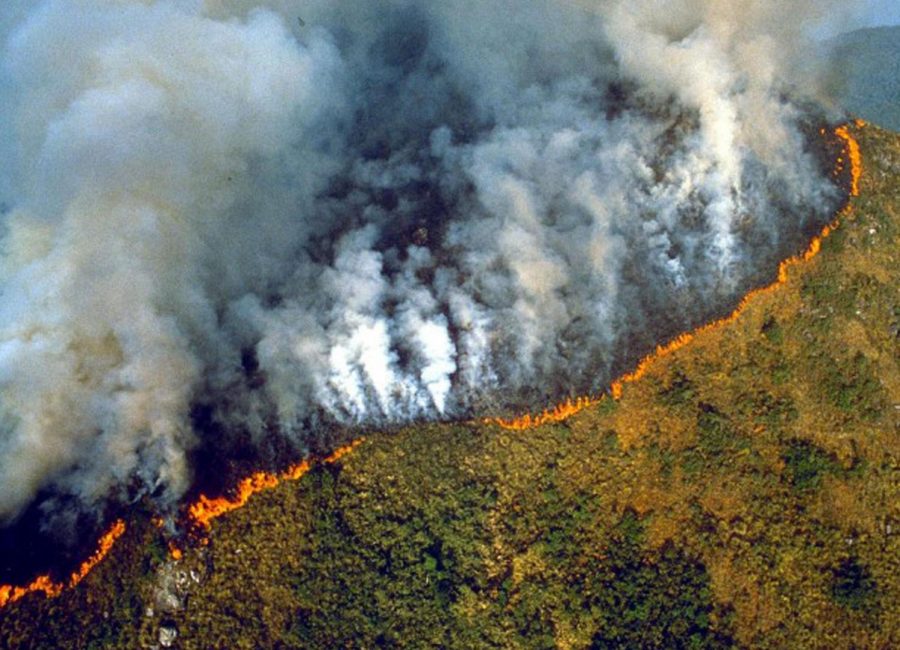Forest fires take their toll on the Amazon
Alarming widespread fires finally die down
September 12, 2019
Though the panic has seemingly died down from reports of forest fires in the Amazon, the burning has left certainly left its impact on the rainforest and surrounding regions. The Amazon had already been burning for weeks before reports of the fires shocked the world in late August, and news and social media platforms erupted hoping to raise awareness. Despite the uprisings of politicians, celebrities, and citizens, help for the Amazon may have come too late.
Wildfires are not a rare occurrence in the Amazon rainforest, and tend to occur during the dry season, but many also start due to illegal deforestation for cattle ranching. According to climate change activists, deforestation activities have been promoted by the Brazilian president, leading to an 84% increase in Amazon forest fires from last year.
In Memory of the animals that died in the recent fires but no one cares
#Amazon#rainforest#fires#PRAYFORAMAZON
pic.twitter.com/qg9l7W56dd
— Bonnie Heather
(@BonnieHeather3) September 6, 2019
Even though the fires were a significant issue that needed attention from Brazilian and world leaders, there are some prevalent misconceptions about the scale of the situation. Many people believe that the Amazon rainforest provides 20% of the world’s oxygen, yet CNN and MSN investigative reports suggest that the actual amount of oxygen produced by the Amazon is less than a single percent of the world’s total oxygen. These reports also indicate that if the Amazon were to completely burn out there would still be a plentiful supply of oxygen left on Earth, so what is the significance?
The Amazon burnings show early trends of a deeper down spiral of drought and fire, in the Amazon region and beyond. The delayed response from the G7 and Brazil’s government in an age of limitless communication raise major concerns for how quickly and effectively future environmental catastrophes will be handled.
World government’s may have dodged a bullet with this wave of Amazon wildfires, but future risks will require much better communication and compromisation. For now, the only thing average citizens can do to help except limit the use of paper products, but future fires are inevitable. The only way to avoid catastrophic damage to our planet is for the great seven nations to come together and formulate ways to handle future threats.





